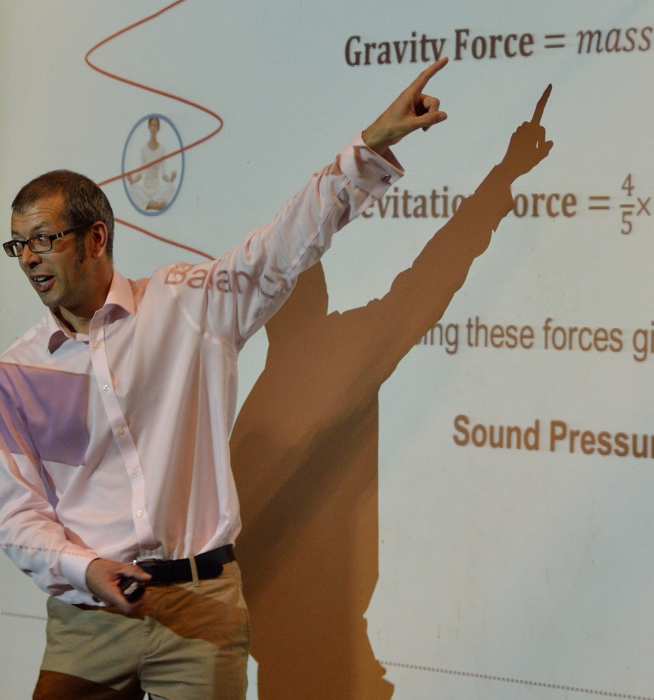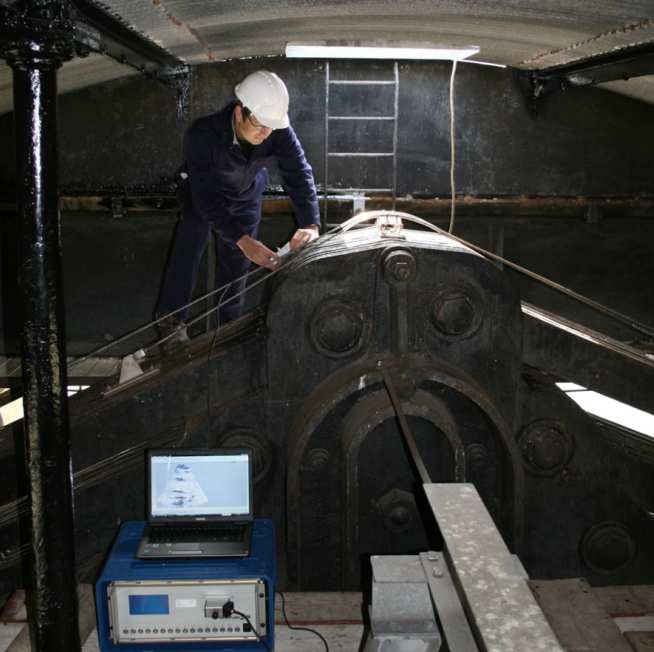Sound can be used to levitate objects against gravity, and Dr Bruce Drinkwater is using this attribute to develop tissue engineering in medicine and assemble composite materials. These are his latest projects after twenty years of research and lecturing at the University of Bristol.
What did you learn during your time at Imperial?
"In class I learnt what engineering is all about, how to stay awake in lectures... Looking back this all set me towards my career in academia, not least starting to think about how I might lecture students.
Out of class, given how diverse Imperial College is, I learnt how to get along with people from all backgrounds and from all over the world."
What is your fondest memory of your time here?
"At the undergraduate level my fondest memory is the pride I felt when the demo of my final year project worked. This showed the audience that I had developed a robot that could control the way in which a piano key was pressed (my project was an investigation of how the way in which you press a piano key affects the sound emitted).
At the post graduate level it was just the excitement of being in a very active and deep thinking group of fellow PhD students, research assistants and academics. I fondly recall coffee breaks which lasted past lunchtime in which we debated the finer points of ultrasonic wave propagation. It was serious, but fun."
What jobs have you done since graduation

"After my PhD I got a lecturing post at the University of Bristol, where I have remained ever since, becoming professor of ultrasonics in 2007.
There are two aspects to the job, teaching and research, and I’m lucky enough to enjoy both.
When I first came to Bristol I was the only academic working on ultrasonics and acoustics, so it was essential that I formed a network of external collaborators. Without really thinking about it I had already developed the start of this at Imperial and my first few major research projects all had Imperial connections. In particular I collaborated with one of my contemporaries who had recently got a Lectureship at the University of Sheffield and together we developed a new type of ultrasonic sensor for bearing condition monitoring. Ultimately this sensor was commercialised and used on numerous industrial applications, which has been very satisfying.
Since those early days my research group has grown and there are now five academics and 25 researchers working on ultrasonics here in Bristol. One of the most important aspects of my job now, and one I particularly enjoy, is coming up with new research ideas. For example, recently I have become interested in physical acoustics, which means using sound to induce a physical effect. It’s not well known but sound can be used to levitate objects against gravity or move microscopic objects suspended in a fluid. There are lots of interesting applications for this technology, such as assembling structured composite materials and tissue engineering. The scale is perfect for many medical applications as cells measure 10s of micrometers and the wavelengths we use are 100s of micrometers (for reference the diameter of the typical human hair is 100 micrometers). I am currently working with Biologists and Medics, looking at positioning cells to improve the quality of engineered tissue as well as working with materials scientists to see if we can integrate ultrasonic assembly with 3D printing, ultimately enabling us to print composite materials. This technology is very much in its infancy, so we don’t yet know what is going to be possible: I’m optimistic that it’s going to make a major impact."
How has what you learnt at Imperial helped you in your career so far?

"I strongly believe that being an engineer is all about tackling, and hopefully solving, open ended problems. I always have in my mind to recreate the excellent student experience I had at Imperial and I owe a great deal to those that supervised me.
As an integral part of my job is to do new things, it’s quite easy to stay enthused. I’m working on two big projects at the moment (as well as the ultrasonics manipulation project I'm also using ultrasonic waves to better characterise defects in engineering structures and hence predict their remaining life) and I’m keen to see these progress from ideas to industrial reality over the coming years. As ever, I’m also wondering what the next big idea is going to be, assuming I have one that is! "
What would be your advice for current students?
"If the course seems tough, it’s because it has to be for it to be worth something. Get through and you will be one of the top engineers in the country, if not the world."